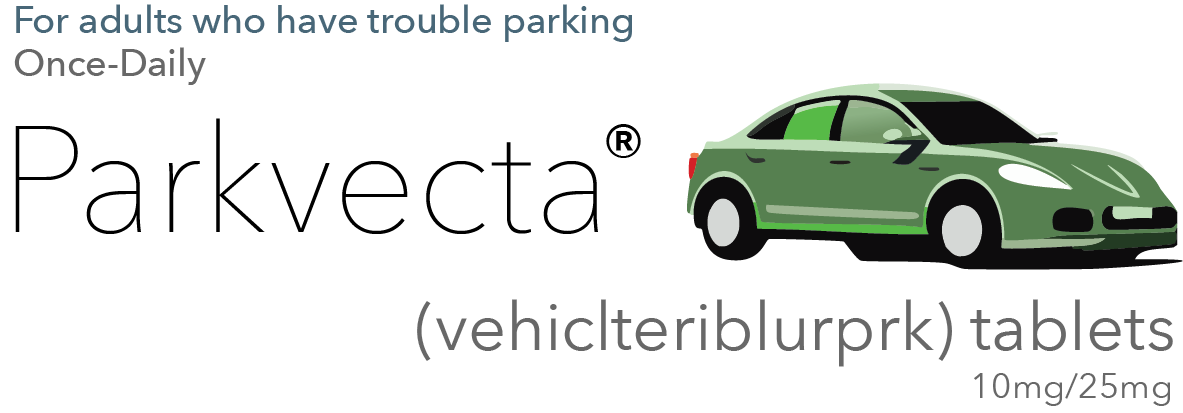
A once-daily prescription Parkvecta®, along with practice and patience, helps adults park.
The "park in your spot" Drug!™
 Does parallel parking giving you anxiety?
Does parallel parking giving you anxiety?
 Do you avoid backing into parking spaces even with a backup camera?
Do you avoid backing into parking spaces even with a backup camera?
 Do people leave mean notes on your windshield about your parking technique?
Do people leave mean notes on your windshield about your parking technique?
Parkvecta® may be for you!
Safety Information
Do not take Parkvecta® if you are allergic to vehiclteriblurprk or any of the ingredients in Parkvecta®. Symptoms of a serious allergic reaction may include:
- Rash
- Swelling of your face, lips, mouth, and throat that may cause difficulty in breathing or swallowing
Parkvecta® may cause serious side effects, including:
- Over confidence. Stop taking Parkvecta® and contact your health care provider if you experience confidence performing tasks outside of parking that you previously had no confidence in. Examples include wood working, singing, heavy machinery, dating, metal work, cooking, martial arts, and painting.
- Fearless parking. In human studies Parkvecta® caused some people to aggressively park without regard to personal property or life. In some rare cases people taking Parkveckta® may park within lines that are not intended for parking. If you experience any of these symptoms, stop parking, and contact your health care provider.
- Over inflated sense of worth. Parkvecta® may cause individuals egos to increase dramatically. Some early warning signs are "whooping", or saying phrases similar to "In your face!" and "I'm the parking master!" after having successfully parked a vehicle. While this side effect is not serious, you could annoy other passengers in your vehicle.
Parkvecta® is not compatible with the following vehicles:
- BMW M-Series vehicles
- Red Ford Mustangs
- Yellow Dodge Chargers
- All vehicles with racing stripes
- Commercial vehicles
- Audi R8
- Tesla Model 3 (2nd Gen)
- Quad Runners
- Pontiac Aztek
- Yukon XL model years 1997-2005
The most common side effects of Parkvecta® may include nausea, vomiting, diarrhea, stomach (abdominal) pain, constipation, and sudden desire to park.
Spot Bad Parking
Parker's Entitlement
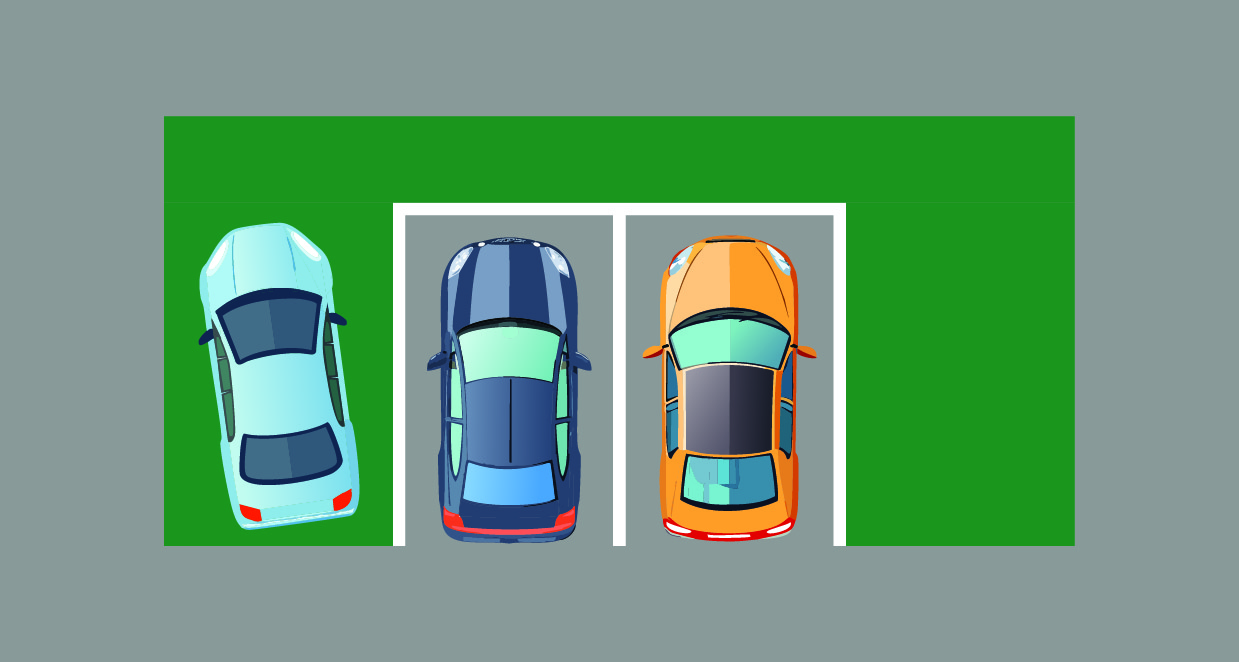
The blue car on the left is parked poorly. You can tell because the vehicle is not in a parking spot, but in fact on the grass next to the parking spot. This is called Parker's Entitlement. Over time Parker's Entitlement can lead to parking in other locations that are not parking spots.
Parker's Predicament
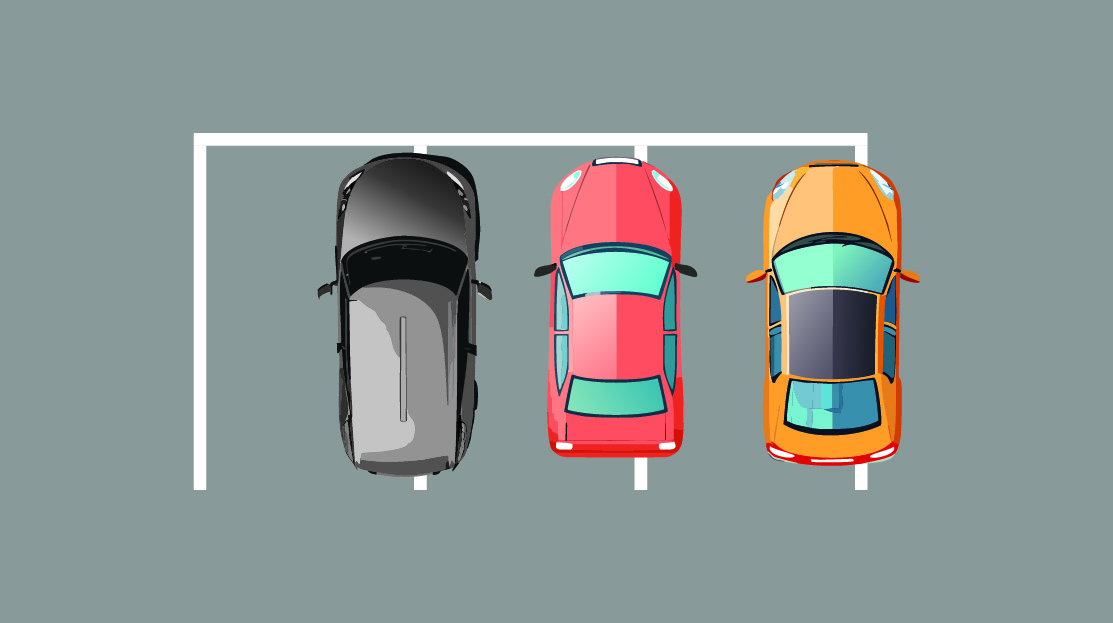
The gray car on the left is parked poorly. You can tell because the vehicle is not within the white lines. This has caused the red car on the right to also park poorly, as well as the orange car. This is called Parker's Predicament. Over time Parker's Predicament can lead to permanent poor parking if not addressed not only for the owner of the grey car, but now the owners of the red and orange car are also susceptible to poor parking in the future.
Parker's Pride
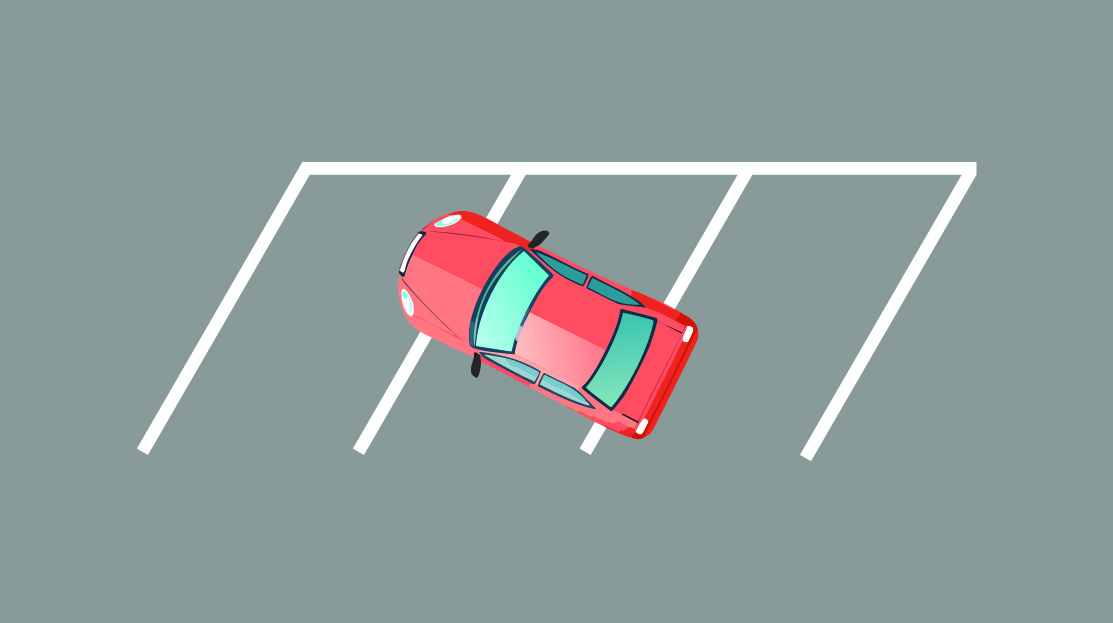
The red car is parked poorly. You can tell because the vehicle is taking up three parking spots. This is called Parker's Pride. An over inflated sense pride for one's car can lead to Parker's Pride where the owner believes their car is worthy of more than one parking spot.
Parker's Choice

The red car on the right is parked poorly. You can tell because the vehicle has taken up two spots in this unmarked parking lot. This is called Parker's Choice. Parking in a lot with no lines can be tricky, but Parkvecta® is here to help!
Parker's Impudence
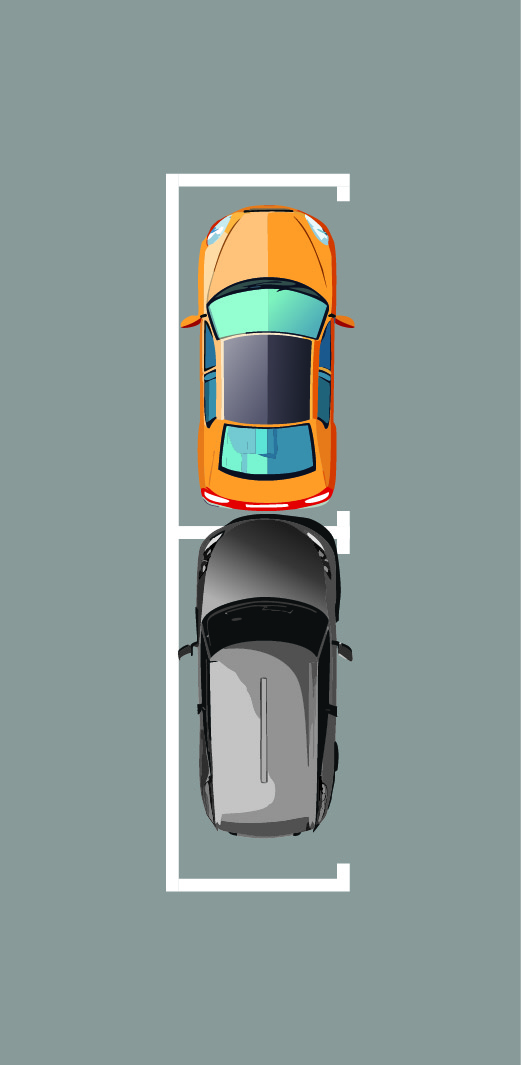
The grey car is parked poorly. You can tell because the vehicle has parked extremely close to the car in front of them. This is called Parker's Impudence. This can happen when the driver has little respect for their fellow parker's ability to exit their parking space.
Parker's Impatience
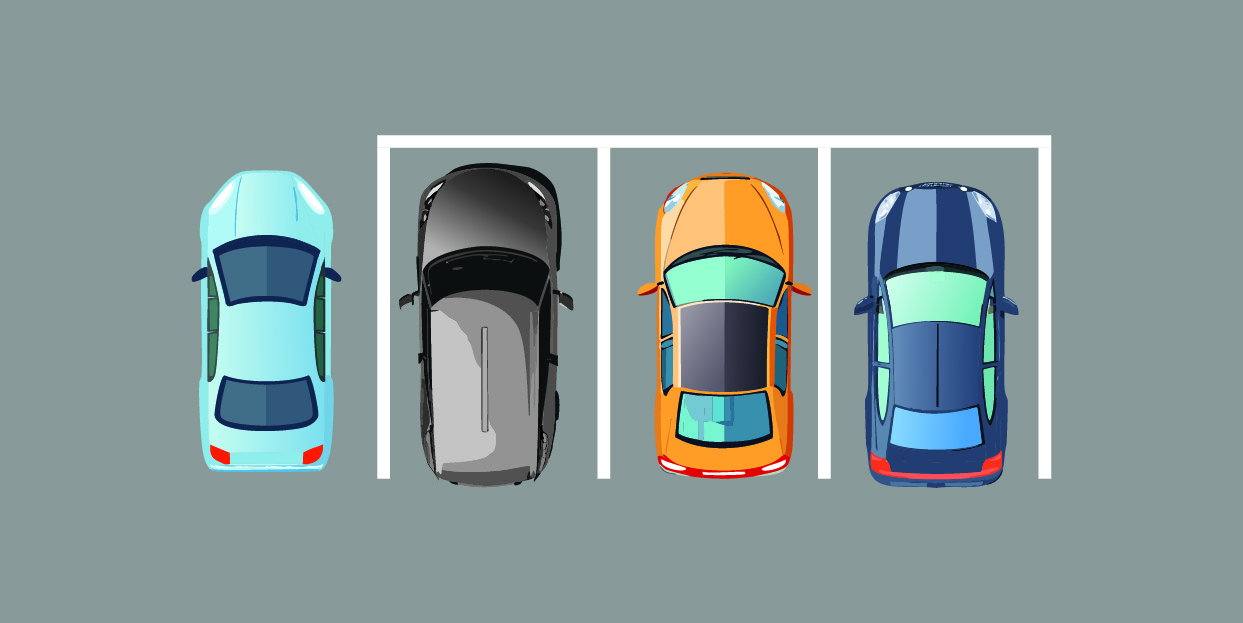
The blue car on the left is parked poorly. You can tell because the vehicle is not in a parking spot, but on a throughway next to the parking spot. This is called Parker's Impatience. The owner of the blue car was too impatient to find a proper parking place for their car so they made a new one, but this can lead to traffic jams, blocked exits, and occasionally, parking lot brawls.
Parker's Enthusiasm
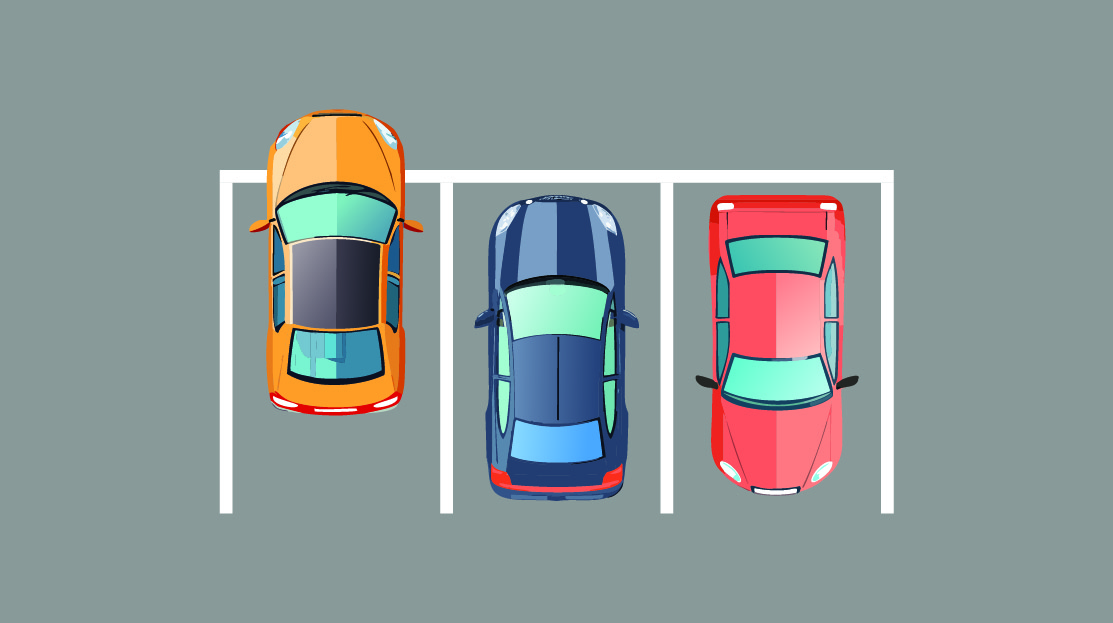
The orange car on the left is parked poorly. You can tell because the vehicle has pulled forward to far and extended beyond the end of the parking spot. This is called Parker's Enthusiasm. The owner of the orange car, in their enthusiasm for having lined up correctly, mistakenly pulled too far forward.
Parker's Hesitation
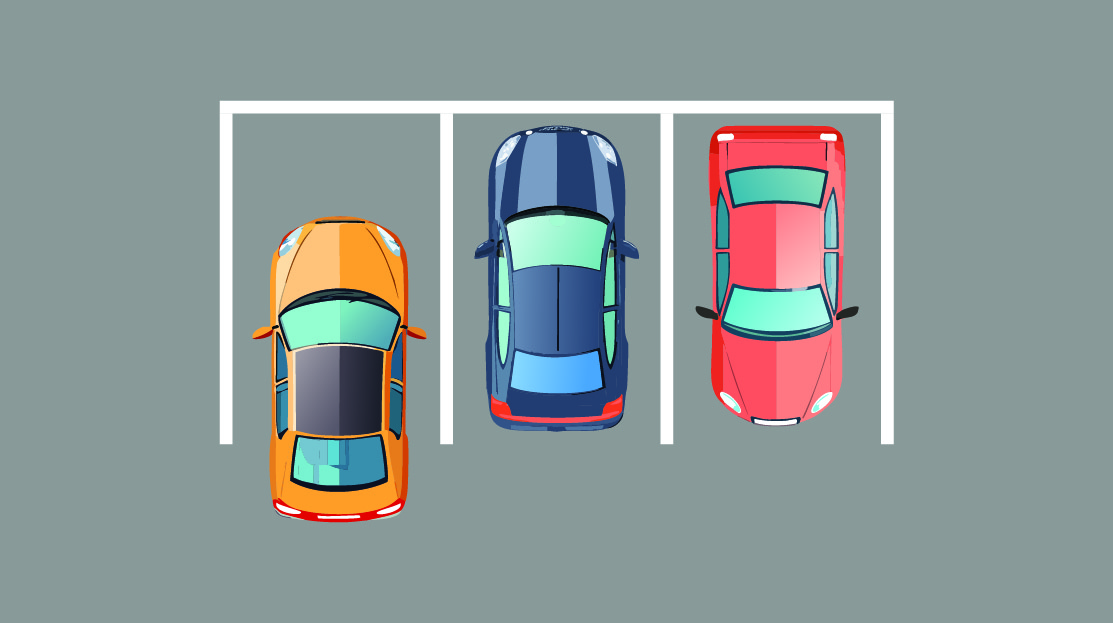
The orange car on the left is parked poorly. You can tell because the vehicle has not pulled far enough into the parking spot. This is called Parker's Hesitation. This is often due to the lack of confidence when parking.
Parker's Misjudgment
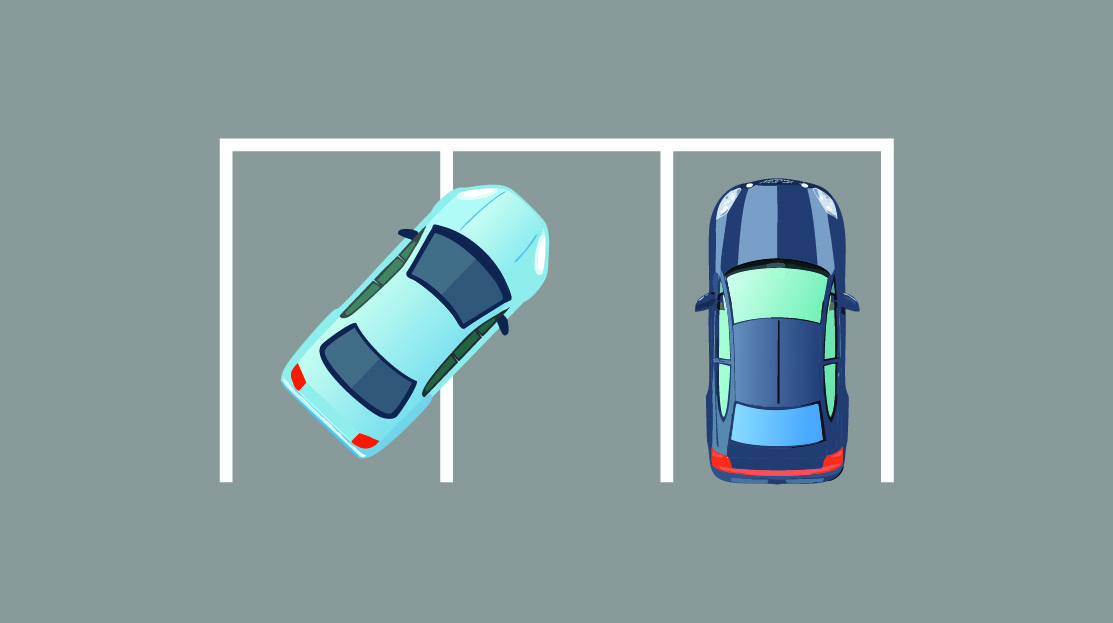
The light blue car on the left is parked poorly. You can tell because the vehicle has parked diagonally in vertically straight parking spaces. This is called Parker's Misjudgment. This can happen when the driver assumes they know what style a parking lot is using for lines and does not bother to check before parking.
Parker's Timidness
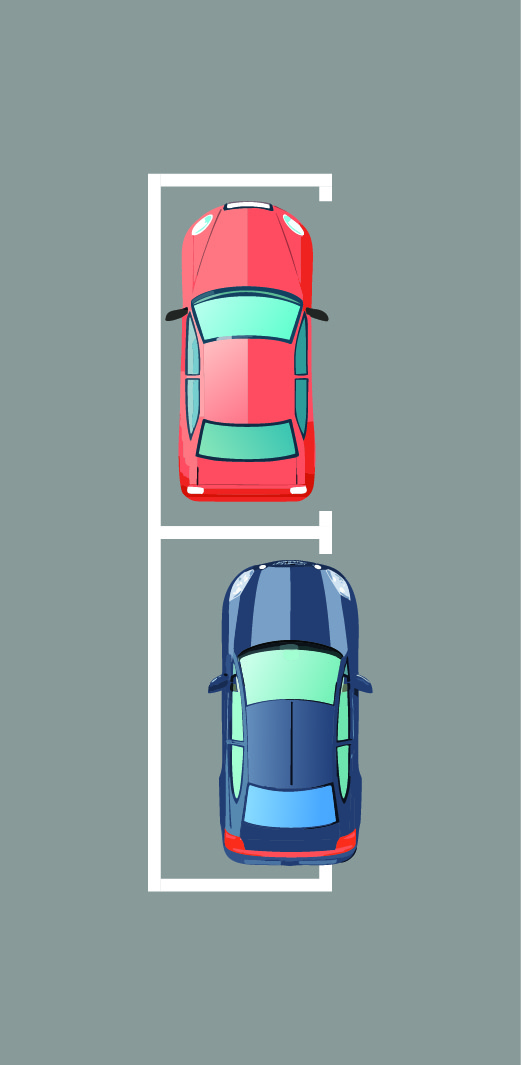
The dark blue car is parked poorly. You can tell because the vehicle has parked a significant distance from the curb while parallel parking. This is called Parker's Timidness. This can happen when the driver is afraid of getting too close to the curb.
Testimonials
Sarah T.
"I used to dread parallel parking, but after starting Parkvecta, I feel much more confident. My anxiety is gone, and I can park perfectly every time! It's been a game-changer for my daily commute."
Michael R.
"Parkvecta® has made a huge difference in my parking skills. I used to struggle with tight parking spaces, but now I can navigate them with ease. Highly recommend it to anyone who needs a boost in their parking abilities!"
Lisa K.
"As a new driver, parking was my biggest challenge. Parkvecta® has given me the confidence I needed to park in any situation. No more worrying about hitting the curb or other cars!"
David L.
"I've been using Parkvecta® for a month now, and the improvement is remarkable. I no longer need multiple attempts to park, and my stress levels have dropped significantly. It's a must-have for anyone with parking anxiety."
Emily S.
"Parallel parking used to be my worst nightmare. Since taking Parkvecta®, I can park smoothly and effortlessly. It's amazing how much difference one pill can make!"
John P.
"Parkvecta® has transformed my parking skills. I used to avoid certain parking spots because they were too tight, but now I can park anywhere without hesitation. It's truly a miracle drug for parking!"
Karen M.
"I can't believe how effective Parkvecta® is. I used to spend so much time trying to park, but now I can do it quickly and efficiently. It's made my life so much easier!"
Tom H.
"Parkvecta® has been a lifesaver for me. I used to get anxious just thinking about parking, but now it's become second nature. I highly recommend it to anyone struggling with parking."
